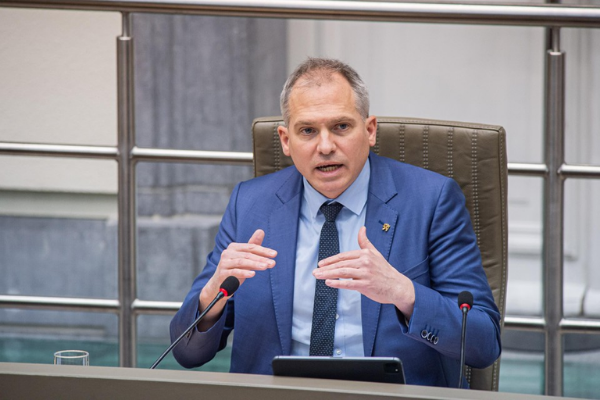Belgium’s national budget deficit would have shrunk €2.4 billion if it wasn’t for the war in Ukraine, although the full cost of the conflict has not yet been accounted for in the estimates, Finance Minister Matthias Diependaele said.
With an expected deficit of €22.7 billion, this year's national budget was cause for optimism. Diependaele presented his long-term estimates in parliament on Tuesday, predicting an inflation rate of 6% this year, followed by 1.7% and lower in the following years.
Belgium's rising inflation can already be felt on the price of groceries and energy bills. However, it can also have a positive effect on regional budgets since income grows faster than expenditure. “Inflation has a positive impact on the regional tax and the surcharges, which means that the deficit is better than previously estimated," Diependaele explained.
With a growth of 3%, the deficit would decrease from €1.37 billion in 2022 to €593 million in 2023 and €94 million in 2024. If policies remain unchanged, the deficit Belgium's regional governments combined will end up at €22.7 billion at the end of this year. Meanwhile, the Federal Government’s deficit amounts to €16.6 billion – €300 million less than foreseen.
Related News
- Why are prices rising? Europe’s energy crisis explained
- Supermarkets faced with shortages and sharp price increases
- Entire world will feel economic 'ripple effects' of war in Ukraine, IMF warns
However, Diependaele warned that the economic outlook is uncertain: “Our economy has entered very turbulent waters. The message remains to be cautious.”
Furthermore, the war in Ukraine has not yet been taken into account in the budget, which means that the previous figures could change significantly.
The government is bracing itself for a raft of associated costs: the reception of refugees, spending on defence, and stunted economic growth.
High energy prices will also indisputably have a negative effect on public finances, State Secretary for the Budget Eva De Bleeker said. Any positive effect of increased tax revenues will be offset by the indexation of civil servants’ higher wages, benefits, and lower VAT receipts.
On top of that, the booster shot has cost the Federal Government €527 million, which the regional governments are meant to refund, an additional cost that the regions have not yet budgeted for.

